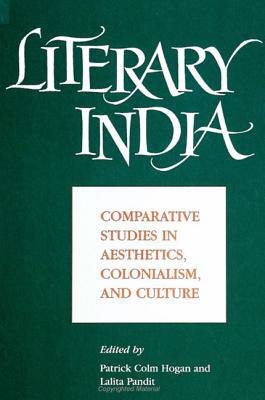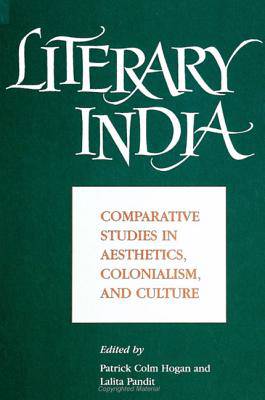
- Retrait gratuit dans votre magasin Club
- 7.000.000 titres dans notre catalogue
- Payer en toute sécurité
- Toujours un magasin près de chez vous
- Retrait gratuit dans votre magasin Club
- 7.000.000 titres dans notre catalogue
- Payer en toute sécurité
- Toujours un magasin près de chez vous
Literary India
Comparative Studies in Aesthetics, Colonialism, and Culture
145,45 €
+ 290 points
Description
This anthology explores the possibilities of a non-Eurocentric comparative literature. Contributors explain and analyze a variety of material from the Indian literary tradition, examining both its indigenous development and its relations with the West. In doing this, they draw upon and develop ideas from cultural criticism, literary theory, linguistics, and Indology. This book begins with an examination of Indian and Western views on basic concerns of literary theory and aesthetics: authorship, genre, and literary language. Specific works of Indian literature are discussed, as are the striking similarities between eighth-century Sanskrit romances and Shakespeare's late plays; the indirect links of Asian folk and popular dramatic traditions with Bertolt Brecht's epic theater; the oppositional parallelism that marks Kipling's Kim and Tagore's Gora; the suggestive variations on the theme of exile in contemporary Indian cinema and Sophocles' Theban plays. The book ends with a re-consideration of post-colonial theory drawing on both Indian and European sources.
Spécifications
Parties prenantes
- Editeur:
Contenu
- Nombre de pages :
- 289
- Langue:
- Anglais
- Collection :
Caractéristiques
- EAN:
- 9780791423950
- Date de parution :
- 01-07-95
- Format:
- Livre relié
- Format numérique:
- Genaaid
- Poids :
- 580 g






